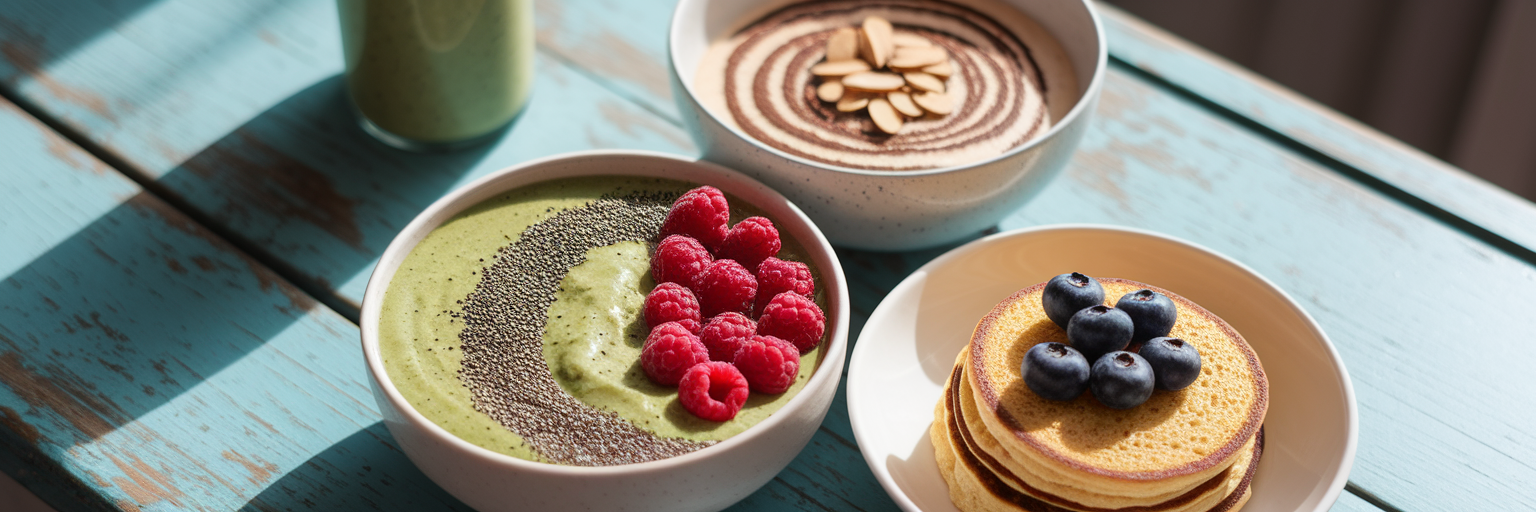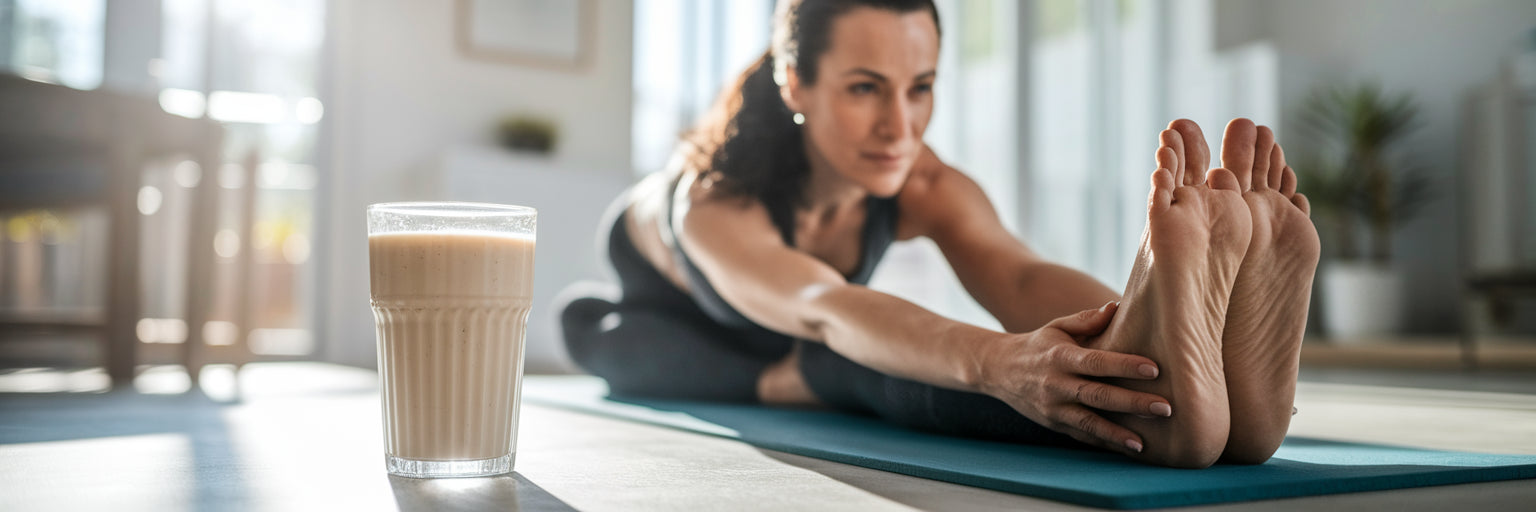If you're an active woman, you know that what you eat directly impacts your performance, energy, and recovery. But have you ever considered how your protein source affects your hormonal health? Let's talk about how the right protein can help you feel your best, both in and out of the gym.
The Protein-Hormone Connection for Active Women
Think of amino acids, the building blocks of protein, as the alphabet your body uses to write important messages. Many of these messages are hormones, the chemical messengers that regulate everything from your mood and metabolism to your energy levels. For active women, keeping these hormones in check is essential for feeling strong and resilient.
Three key hormones play a huge role in your fitness journey:
- Estrogen: This hormone is vital for maintaining strong bones and building lean muscle.
- Progesterone: It helps regulate your mood and promotes restful sleep, which is crucial for recovery.
- Cortisol: Known as the stress hormone, it's released during intense exercise. While necessary in short bursts, chronically high cortisol can lead to fatigue and burnout.
An active lifestyle places unique demands on your endocrine system. Every workout is a form of stress, and your body needs enough protein not just to repair muscle fibers, but also to maintain hormonal stability. When protein intake is insufficient, you might notice more than just sore muscles. It can contribute to persistent fatigue, mood swings, or even disruptions in your menstrual cycle. Understanding how to balance hormones with diet starts with recognizing protein's foundational role. But as you'll see, the source of that protein can make a significant difference.
Why Plant-Based Proteins Are a Game-Changer

So, why are so many active women turning to plants for their protein? It turns out that a plant based protein for women offers some unique advantages for hormonal harmony. Many plant foods, like flax and soy, contain phytoestrogens. These are natural plant compounds that can gently interact with your body's estrogen receptors, helping to buffer the hormonal ups and downs that can come with PMS or perimenopause.
Another major benefit is fiber. Plant proteins are naturally rich in fiber, which is fantastic for your gut health. A happy gut is essential for metabolizing hormones and efficiently clearing out any excess, preventing them from recirculating and causing imbalances. This is a key component of using vegan protein for hormonal balance.
Furthermore, plant-based diets are known for their anti-inflammatory properties. According to research from the Harvard T.H. Chan School of Public Health, diets centered on plants can help lower systemic inflammation. This is incredibly helpful for managing cortisol levels, as chronic inflammation can keep your body in a state of stress. For women dealing with conditions like PCOS, some plant proteins can also support better insulin sensitivity, another cornerstone of hormonal health. If you're curious about other plant-based wellness topics, you can explore the full range of articles on our blog.
Key Nutrients in Vegan Protein for Hormone Health
Beyond the protein itself, whole plant foods are packed with micronutrients that are essential for hormonal function. When you choose a high-quality vegan protein powder, you're often getting these benefits too. These are some of the most important hormone balancing foods for women and the nutrients they contain.
For instance, iron is critical for healthy thyroid function, which governs your metabolism. Magnesium, often called the "calming mineral," helps your body manage cortisol and supports the nervous system. The importance of minerals like magnesium and zinc for female health is well-documented by research, including findings from the National Institutes of Health. Here’s a quick look at some key players:
| Nutrient | Hormonal Role | Common Vegan Sources |
|---|---|---|
| Iron | Supports thyroid function and energy metabolism; combats fatigue. | Lentils, spinach, tofu, fortified protein powders. |
| Magnesium | Helps regulate cortisol, supports nervous system, aids in estrogen and progesterone production. | Pumpkin seeds, hemp seeds, almonds, dark chocolate, leafy greens. |
| Zinc | Crucial for healthy ovulation and regulating hormone release from the pituitary gland. | Chickpeas, lentils, hemp seeds, fortified cereals. |
| Vitamin B6 | Aids in progesterone production and synthesis of mood-regulating neurotransmitters like serotonin. | Chickpeas, potatoes, bananas, fortified protein powders. |
Ensuring you get enough of these nutrients through your diet is a powerful way to support your body's natural rhythms and keep your hormones happy.
Practical Ways to Add Vegan Protein to Your Routine

Incorporating more vegan protein into your day is easier than you think, and it goes way beyond just chugging a post-workout shake. The key is to get creative and make it a seamless part of the meals you already enjoy.
Here are a few simple ideas to get you started:
- Boost Your Breakfast: Stir a scoop of unflavored or vanilla protein powder into your morning oatmeal or non-dairy yogurt for a satisfying start to your day.
- Bake It In: Add protein powder to your favorite pancake, waffle, or muffin recipes. It’s an easy way to make your treats more nutritious.
- Blend into Soups: A scoop of unflavored pea protein can add creaminess and a protein punch to blended soups like butternut squash or tomato.
- Power Up Your Snacks: Mix protein powder with a little water or plant milk to create a pudding, or roll it into energy balls with oats and nut butter.
To ensure you're getting all the essential amino acids, think about food combining. For example, if you have a pea protein shake, you could pair it with a meal of rice and beans later in the day to get a complete protein profile. If you need some inspiration, check out these 3 easy vegan protein recipes you'll actually crave. What are your favorite ways to use vegan protein? Share your ideas in the comments below!
Choosing the Right Vegan Protein and What to Look For
With so many options available, how do you find the best vegan protein powder for women? First, let's address a common concern: "incomplete" proteins. Many high-quality vegan powders solve this by blending different plant sources, like pea and rice protein, to create a complete amino acid profile that rivals whey.
When you're reading labels, here’s what to look for:
- Minimal Added Sugars: Choose powders with little to no added sugar to avoid blood sugar spikes.
- No Artificial Fillers: Look for a clean ingredient list without unnecessary gums, fillers, or artificial flavors.
- Third-Party Certifications: Seals from organizations like NSF or Informed-Sport guarantee the product has been tested for purity and contaminants.
It's also wise to be mindful of nutrients that can be harder to get on a fully vegan diet, like Vitamin B12 and Omega-3s. Some protein powders are fortified with these, but it's always a good idea to consult with a healthcare provider to ensure your needs are met. Our guide to the best protein powders can help you navigate the options.
Ultimately, the best choice is the one that makes your body feel its best. Listen to your body and find what works for you. Ready to find a clean, plant-based protein to support your wellness goals? Explore our full collection of products.



